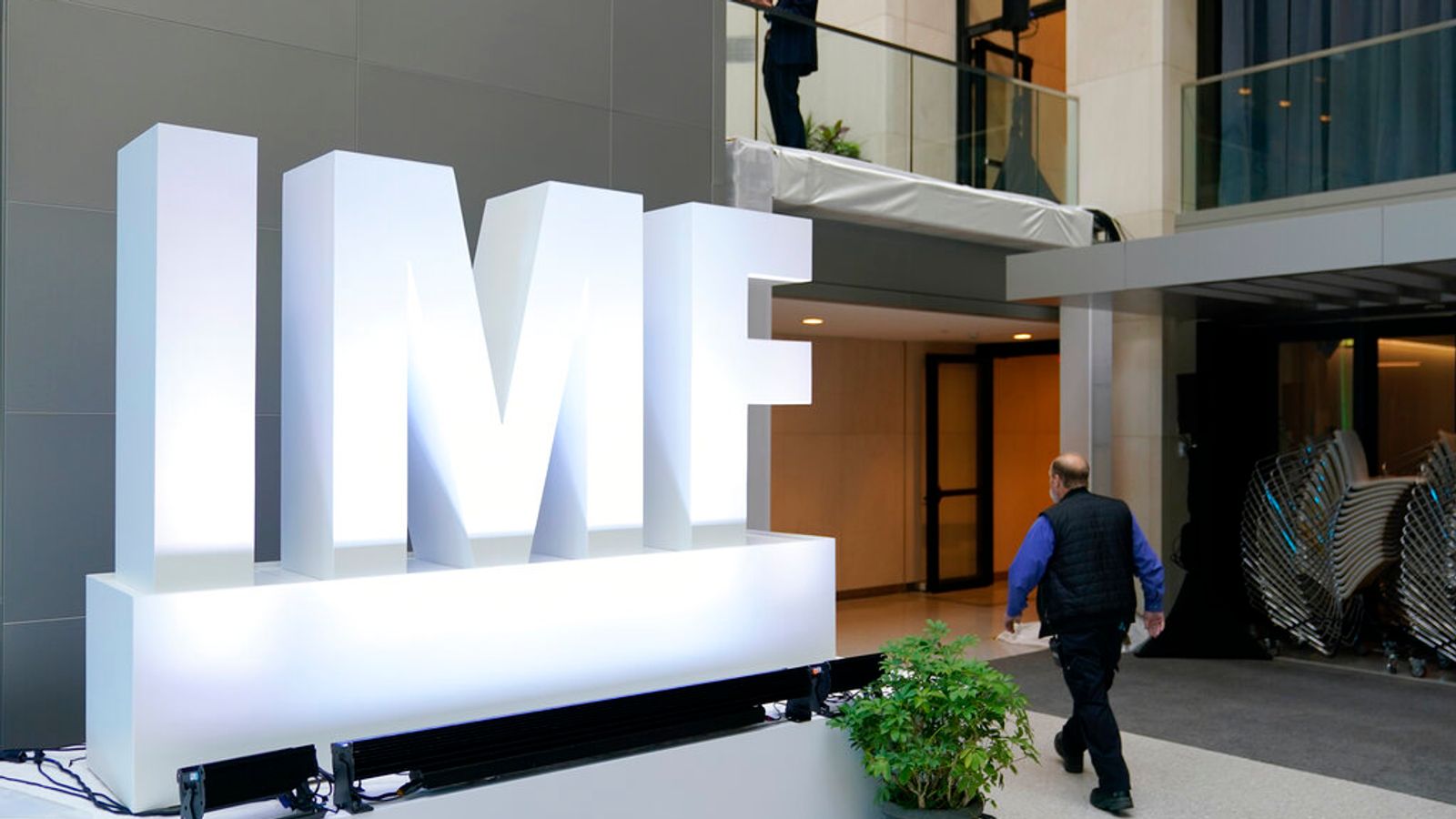The world economy is entering a “perilous phase” of low economic growth and high financial risk, the International Monetary Fund has warned in its latest set of assessments.
The IMF, which is holding its spring meetings in Washington this week, downgraded its outlook for global growth and said its medium term forecast for economic output was now at the weakest level since the fund began publishing these forecasts in 1990.
However its chief economist Pierre-Olivier Gourinchas added that there were also more severe risks in prospect.
He said: “We are… entering a perilous phase during which economic growth remains low by historical standards and financial risks have risen, yet inflation has not yet decisively turned the corner.”
“Below the surface,” he added, “turbulence is building, and the situation is quite fragile, as the recent bout of banking instability reminded us.
“Inflation is much stickier than anticipated even a few months ago. While global inflation has declined, that reflects mostly the sharp reversal in energy and food prices. But core inflation, excluding the volatile energy and food components, has not yet peaked in many countries.”
This cocktail of factors prompted the IMF to cut its forecast for global economic growth by 0.1 percentage points this year and next, to 2.8% and 3% respectively.
UK private sector shrinks for the eighth consecutive quarter
Hundreds of thousands of small businesses may fold this year – wiping £12bn from economy, report says
Stronger public finances weaken government’s stance on pay, IFS says ahead of budget
Please use Chrome browser for a more accessible video player
However, the fund said that there was now a one-in-four chance of global growth falling below 2% this year, something tantamount to a global recession, and which has only happened five times since 1970 (most recently in 2009 and 2020).
The UK has received an upgrade to its economic growth forecast this year and next, but it is nonetheless forecast to be the worst performing economy in the G7 this year, shrinking by 0.3%. UK gross domestic product is slated to rise to 1% next year.
The fund’s warnings follow the collapse of Silicon Valley Bank in the US and Credit Suisse in Europe, episodes which have raised the prospect of further financial turbulence in the coming months, as the system responds to rising interest rates.
In the World Economic Outlook, Mr Gourinchas referred to the troubles in the UK pensions market following last September’s mini-budget, saying: “The financial instability last fall in the gilt market in the United Kingdom and the recent banking turbulence in the United States with the collapse of a few regional banks illustrate that significant vulnerabilities exist both among banks and non-bank financial institutions.
“In both cases the authorities took quick and strong action and have been able to contain the spread of the crisis so far. Yet the financial system may well be tested again.”
Be the first to get Breaking News
Install the Sky News app for free
Yet alongside these immediate concerns, there is another worry haunting policymakers as they gather in Washington for this six-monthly set of meetings: that the global economy may have lost some of its mojo.
The decline in the long term global growth rate in this latest forecast is in part down to “benign” factors – among them the fact that countries like China, which have driven global growth for more than a decade, are becoming higher income nations, with an inherently slower growth rate.
Read more business news:
CBI boss Tony Danker sacked over ‘conduct at work’
UK to see return of ultra-low interest rates, IMF says
But the other worry they have is that the world is beginning to deglobalise, with many countries unravelling their supply chains and introducing new trade barriers.
Those barriers, which are rising faster than ever before, could constrict global productivity, implying weaker growth for the long run.
Responding to the IMF statement Chancellor Jeremy Hunt said:
“Thanks to the steps we have taken, the OBR [Office of Budget Responsibility] says the UK will avoid recession, and our IMF growth forecasts have been upgraded by more than any other G7 country.
“The IMF now say we are on the right track for economic growth. By sticking to the plan we will more than halve inflation this year, easing the pressure on everyone.”






















